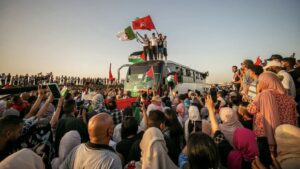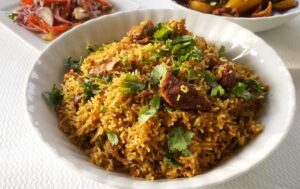Muslims all over the world would soon be celebrating Eid al-Adha, literally the festival of sacrifice, but there is a much deeper meaning to this, writes Imam Dr. A. Rashied Omar.
Eid al-Adha was established as a celebration for completing the rites of the pilgrimage – the hajj – the fifth and final pillar of Islam.
The significance of the hajj is inextricably bound up with its symbolic rites. The Qur’an explains the symbolism underlying the rites of the hajj in many verses (2:158; 22:32; 22:36). This stress on the symbolic character of hajj rites is meant to draw the believers’ attention to the spiritual meanings of these rites. And to warn against making, unconsciously, a fetish of them, i.e. attributing too much attention to the external form of the ritual at the expense of its symbolic meaning and transformational purpose.
At the very heart of the symbolism of the hajj is that of the equality in which Islam holds all humankind. This is also at the heart of the social message of the celebration of Eid al-Adha. In his famous farewell sermon at mount ‘Arafat on his final pilgrimage, Prophet Muhammad summed up the essence of the message of the Hajj when he proclaimed: “All human beings are descendent from the prototype Adam, and Adam has been created from the earth. There is no superiority for an Arab over a non-Arab, nor for a non-Arab over an Arab. Neither is there superiority for a white person over a black person, nor for a black person over a white person, except the superiority gained through God-consciousness. Indeed the noblest of you in the sight of God is the one with the most righteous conduct (taqwa).”
When contextualising the social message of the hajj and Eid al-Adha to contemporary South African society, the following picture emerges: We, South Africans, are all victims of apartheid socialization and consequently have been profoundly infected by the disease of racism. Notwithstanding the fact that we have lived in post-apartheid society for a quarter of a century now, we are still very much part of subtle forms of institutional racism. We need to purify and heal our souls and rid our communities from this scourge. But the first stage of purification of our souls is acknowledgement. To acknowledge that we are sometimes racist is never easy. Most of us can easily recognise it in others, but deny that it exists within us. Admission and introspection can be powerfully liberating strategies.
While South Africa has made some important strides in the struggle against racism, institutional racism still abounds. One need only listen to a private conversation or surf the internet or glean social media responses to news reports about South Africa and you will be confronted with all kinds of racism, bigotry and discrimination, being hurled around.
The challenge is thus, not merely to defend the strides that South African society has made in the struggle against racism but to expand on it, and to entrench it within the institutions of this country.
We need to look inside ourselves and become introspective, and undertake a modest, but well-defined action plan to restructure our lives and institutions to combat racism. One of the most potent strategies is to encourage our youth to learn a vernacular language, such as Zulu or Xhosa.
Suggestion
At this sacred time of Eid al-Adha we should ask ourselves: what have we done to empower the new generations of youth to use the egalitarian values we championed during the anti-apartheid movement to transcend racist and xenophobic tendencies and to reach out to other South Africans and Africans? One suggestion is to make sure that South African history is introduced more robustly in our school syllabi. Another is for parents to inspire our youth to believe that this country’s democracy opens up so many opportunities for them, that we as parents never had, and that they should seize.
Let us use Eid al-Adha as a new starting point to liberate ourselves from falling into the trap of living in communities of privilege and exclusion. Let us work hard to re-establish the core ethic of anti-racism and the equality of all human beings as an integral part of contemporary South African culture and society.
We pray that all of those who have been blessed to perform the pilgrimage will return home better able to live up to the anti-racist message of Islam.
May you all enjoy a festive ‘Eid and May you live well and in the Grace of God.


